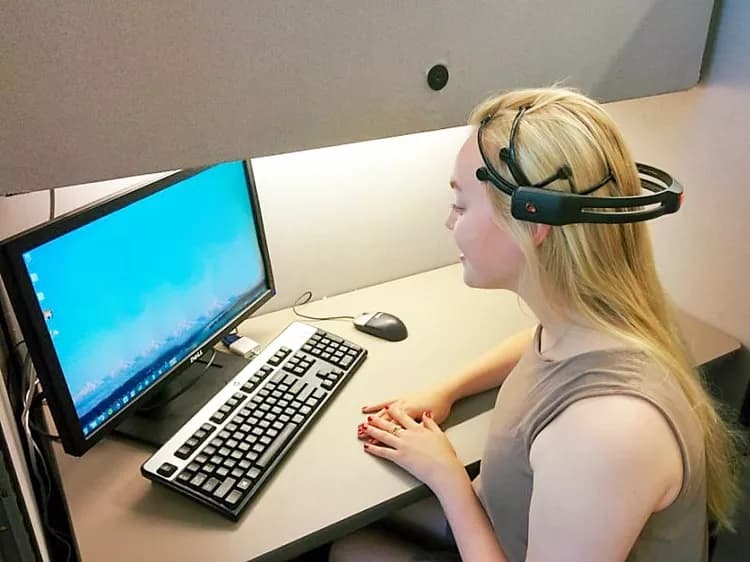
Fast Fluency: Can We Identify Quick Language Learners?
Ever wonder why some people seem to learn new languages faster? The secret might lie in the brain activity they generate while relaxing.
New findings by scientists at the University of Washington demonstrate that a five-minute measurement of resting-state brain activity predicted how quickly adults picked up a second language. The study, sponsored by the Office of Naval Research (ONR), is the first to use patterns of resting-state brain waves to determine subsequent language learning rate.
"This is vital brain function research that could enable the military to develop a more effective selection process of those who can learn languages quickly," said Dr. Ray Perez, a program officer in ONR's Warfighter Performance Department, who oversees the research. "This is especially critical to the intelligence community, which needs linguists fluent in a variety of languages, and must find such individuals rapidly."
Study author Dr. Chantel Prat--an associate professor and faculty researcher at the University of Washington's Institute for Learning & Brain Sciences--wrote that the way someone's brain functions while at rest predicts 60 percent of their capacity for learning a second language.
For the experiments, 19 participants--adults between the ages of 18 and 31, with no previous experience learning French--visited Prat's lab twice weekly over eight weeks for 30-minute French lessons delivered through an immersive, virtual-reality computer program called Operational Language and Cultural Training System (OLCTS).
The ONR-funded OLCTS is designed to make military personnel proficient in a foreign language after 20 hours of training. The self-paced program guides users through a series of scenes and stories. A voice-recognition component enables users to check their pronunciation.
To ensure experiment participants were progressing well, the researchers used periodic quizzes that required a minimum score before proceeding to the next lesson. The quizzes also served as measures for how quickly participants moved through the curriculum.
For five minutes before and after the eight-week curriculum, Prat had participants sit still, close their eyes, breathe deeply and wear an EEG (electroencephalogram) headset measuring resting-state brain activity from the cerebral cortex--an area of the brain crucial to memory, attention and perception.
"The brain waves we recorded reflect synchronized firing of large networks of neurons," said Prat. "We found that the larger the networks were in 'beta' frequencies [brain frequencies associated with language and memory], the faster our participants learned French."
To confirm this, at the end of the eight-week language program, participants also completed a proficiency test covering the lessons they had finished. Those with the larger "beta" networks learned French twice as quickly.
However, Prat is quick to point out that language learning rates were the only things predicted by the recorded brain activity. Participants with smaller "beta" networks still learned the material to which they were exposed equally well.
"There's more that goes into learning a new language than speed," said Prat. "You also have to factor in motivation, study habits and practice methods."
The next stage of Prat's research focuses on ways to improve and accelerate resting-state brain activity through neurofeedback training. Think of this as a workout regimen that bulks up grey matter with brain games and mental cognition exercises like puzzles. Prat will have participants perform a range of neurofeedback techniques before completing the language program, and evaluate the results.
"By studying individual differences in the brain, we're figuring out key constraints on learning and information processing, to develop ways to improve language mastery," said Prat. "This not only could benefit our nation's military, but also our industry and educational system. In our increasingly connected global society, it pays to be able to speak multiple languages."
The above post is reprinted from materials provided by Office of Naval Research. Note: Materials may be edited for content and length.
Disclaimer: DoveMed is not responsible for the adapted accuracy of news releases posted to DoveMed by contributing universities and institutions.
Primary Resource:
Prat, C. S., Yamasaki, B. L., Kluender, R. A., & Stocco, A. (2016). Resting-state qEEG predicts rate of second language learning in adults. Brain and language, 157, 44-50.
Related Articles
Test Your Knowledge
Asked by users
Related Centers
Related Specialties
Related Physicians
Related Procedures
Related Resources
Join DoveHubs
and connect with fellow professionals

0 Comments
Please log in to post a comment.